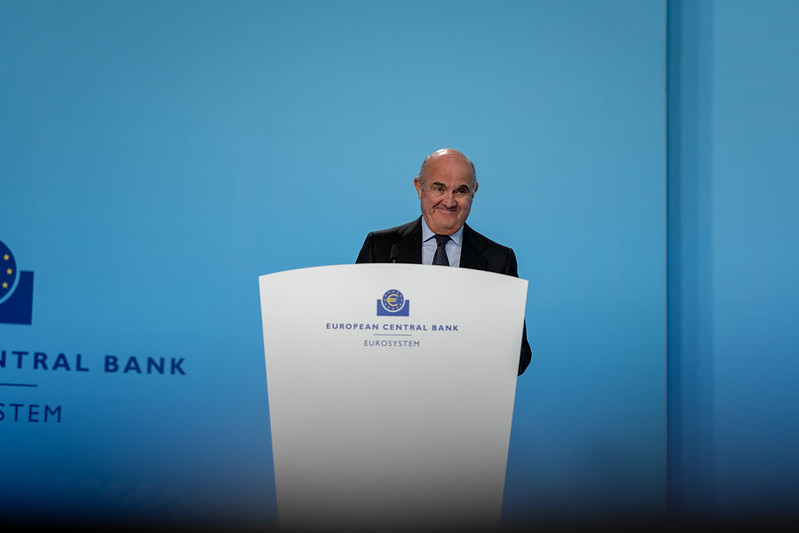By Marta Vilar – MADRID (Econostream) – European Central Bank Vice President Luis de Guindos said on Monday that although the ECB remained concerned about sluggish economic growth, the broader macroeconomic backdrop had improved compared with last year.
In a speech at the Frankfurt Euro Finance Week, organised by the dfv Euro Finance Group, de Guindos said that inflation was “now close to 2%” and the ECB expected it to return to the target over the medium term.
“[W]e remain concerned about low growth, although we have seen an improvement in the overall macroeconomic environment compared with a year ago,” he said.
He noted that trade-related uncertainty had eased thanks to agreements between the US and several major trading partners. Markets were now less focused on the potential impact of short term tensions and more on the longer term consequences of tariff measures, he added.
“Although uncertainty has partially abated in the second half of the year, it is now a defining feature of our times,” he said. “While the risk of a large-scale trade war has been averted, adverse spillovers beyond the trade sphere have again brought financial stability risks to the fore.”
According to de Guindos, global financial conditions, largely influenced by developments in US markets, posed risks to euro area financial stability by potentially triggering sharp currency movements, eroding trade competitiveness, and creating volatility and spillovers in borrowing costs for governments, corporates and banks.
He warned that policy shocks could unsettle the international order and heighten global fragmentation risks, with ongoing geopolitical tensions increasing the likelihood of adverse tail events.
De Guindos cited high asset valuations as one of the key vulnerabilities to financial stability and said that markets could face “sharp and correlated asset price adjustments.”
“In addition, the apparent disconnect between the prevailing economic policy uncertainty and benign market pricing leaves the way open for abrupt shifts in sentiment,” he said.
De Guindos also identified fiscal policy as a further source of financial stability risk. Fiscal pressures in major economies like the United States could spark concerns about debt sustainability, put stress on bond markets and prompt a wider reassessment of sovereign risk, he said.
Tariff effects could weigh on banks as well, deteriorating credit quality and forcing higher provisioning, he said.
“Overall, financial stability vulnerabilities remain elevated in view of uncertainty over geoeconomic trends and the ultimate impact of tariffs in a volatile international environment,” he concluded.
Related articles:

